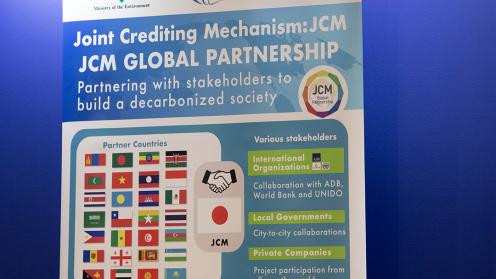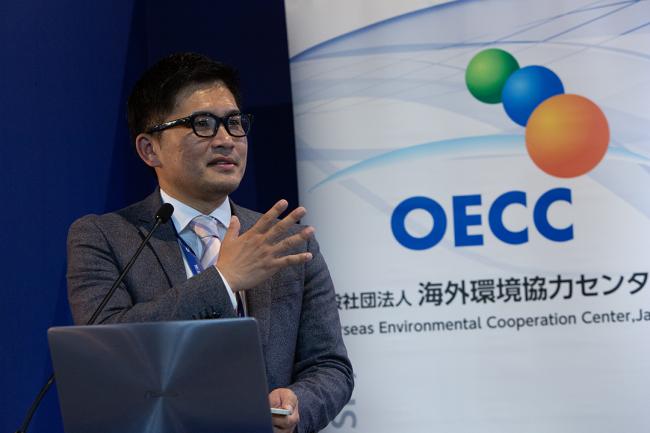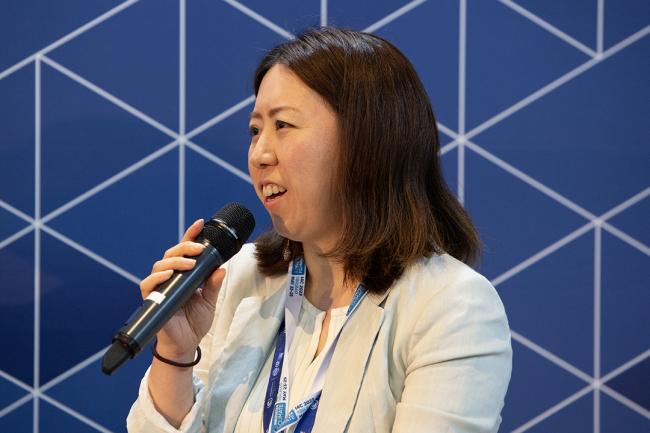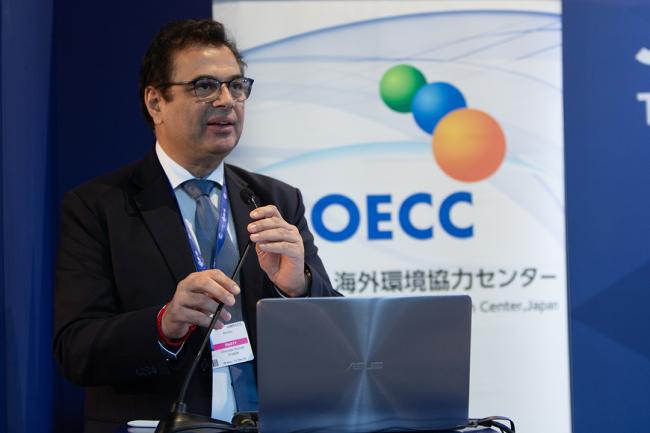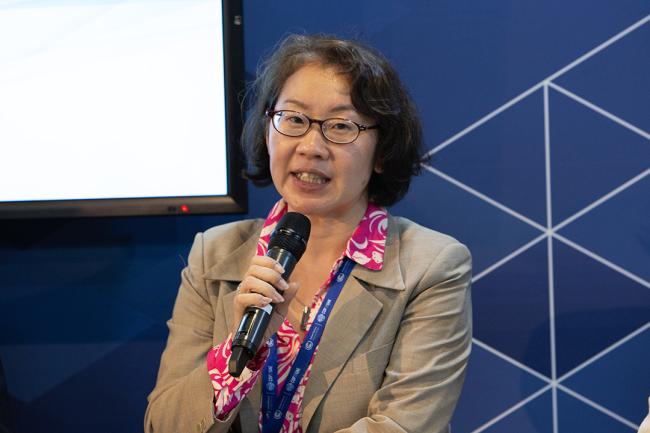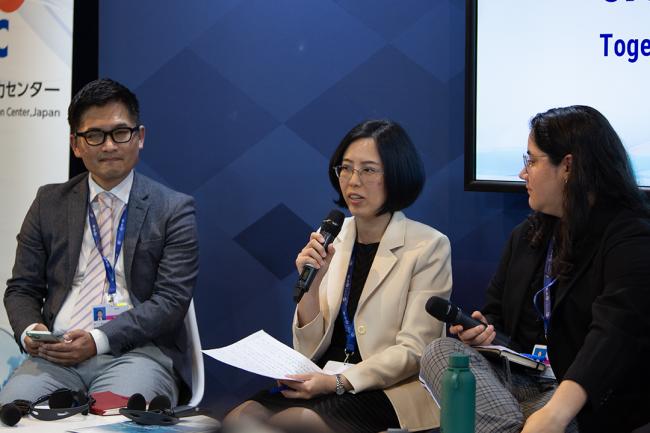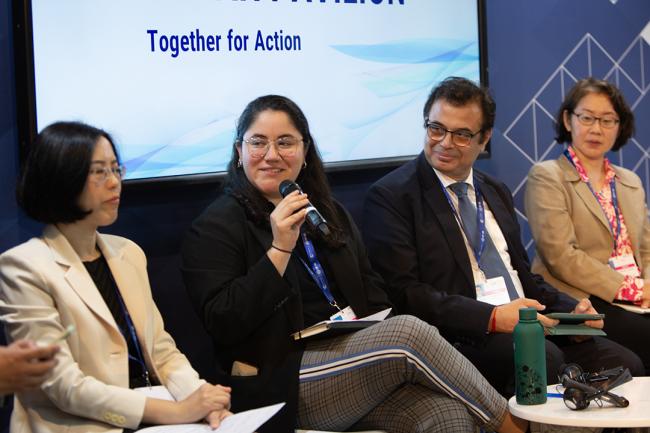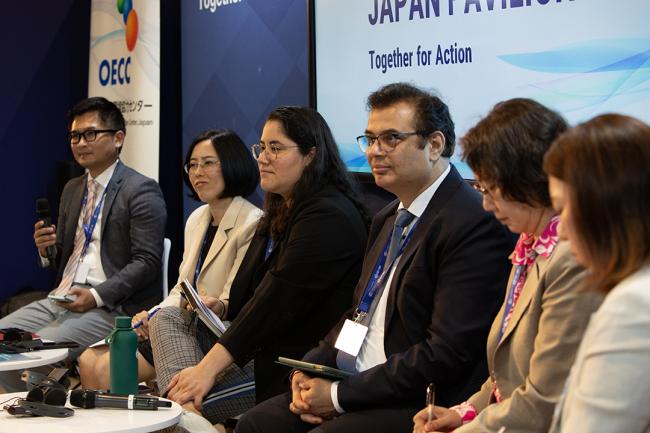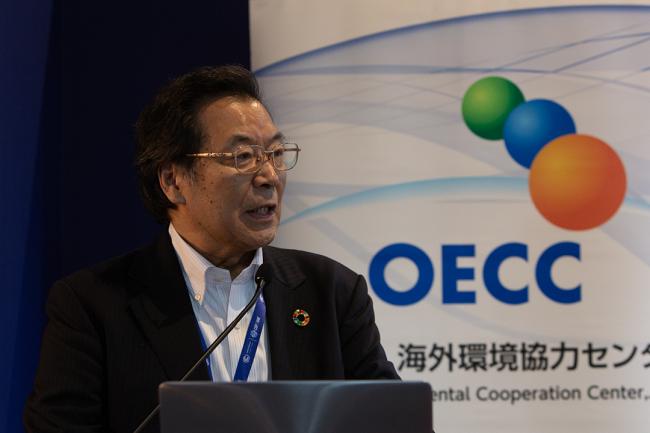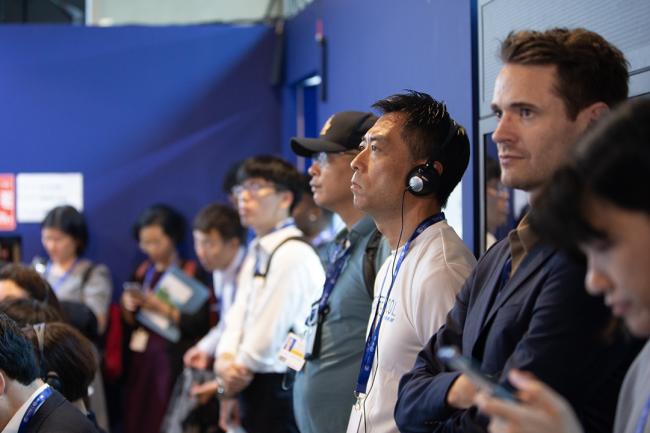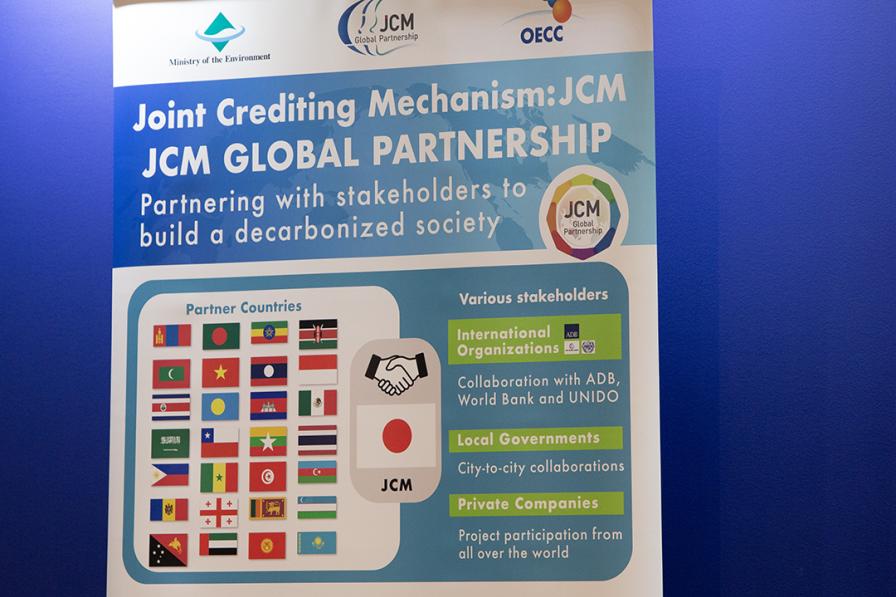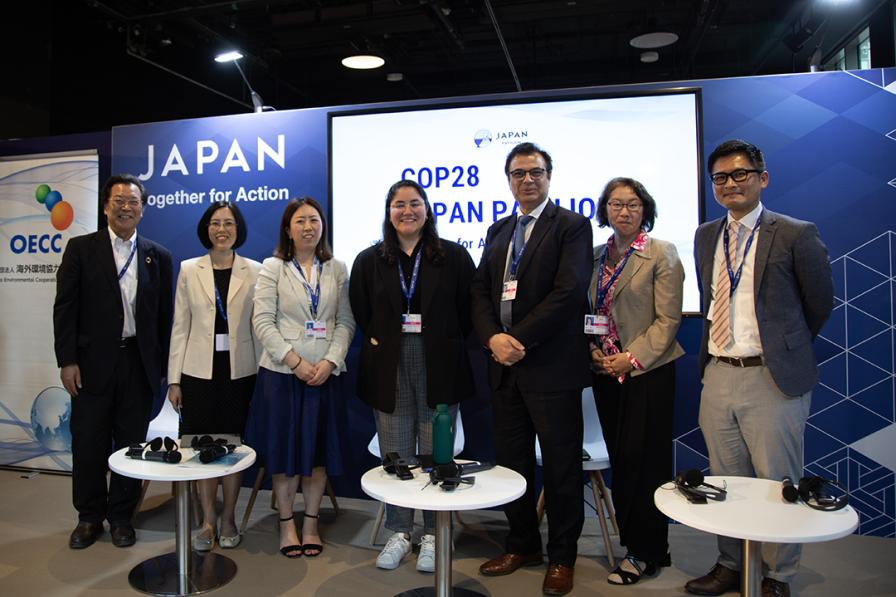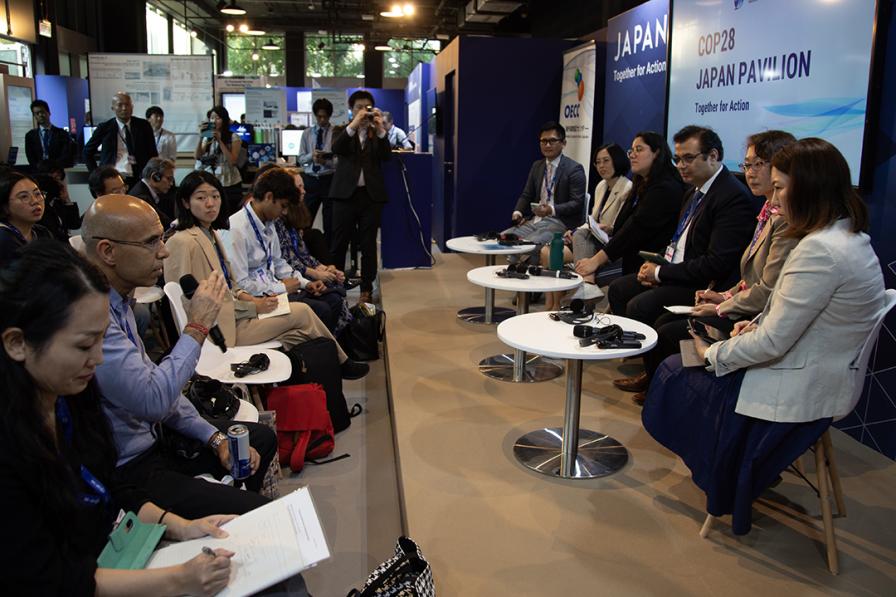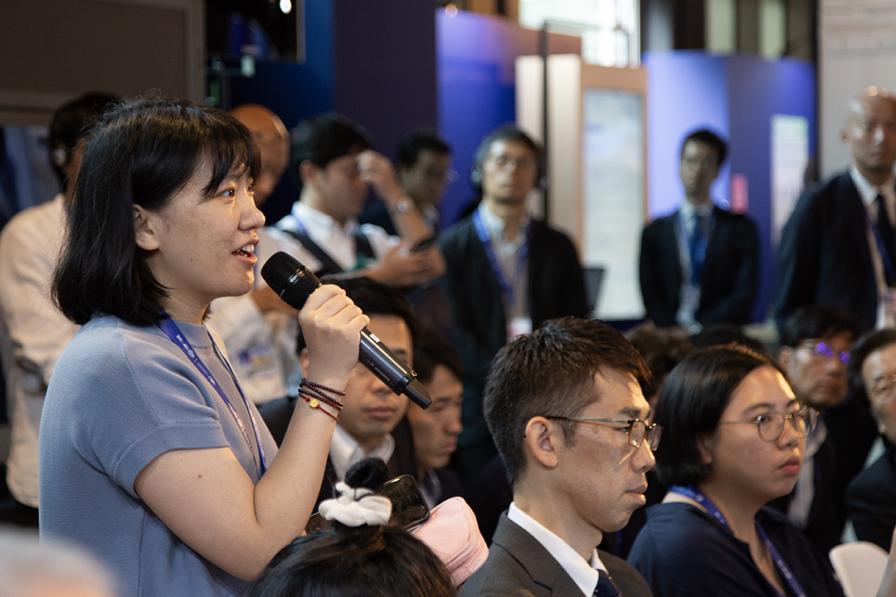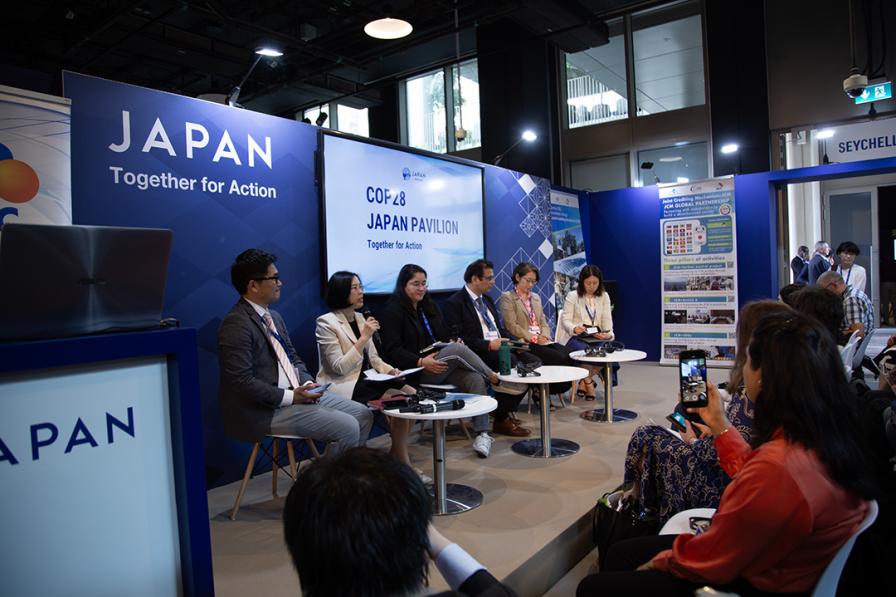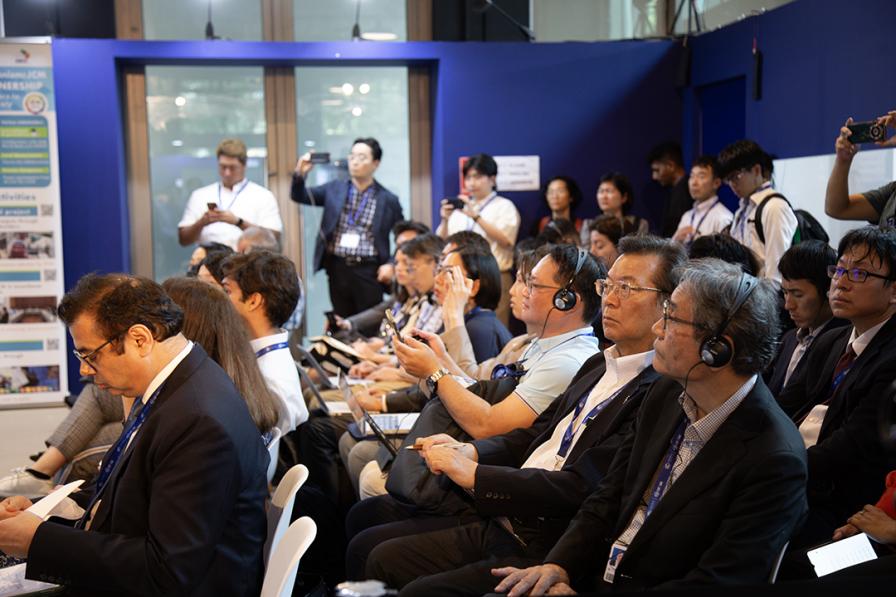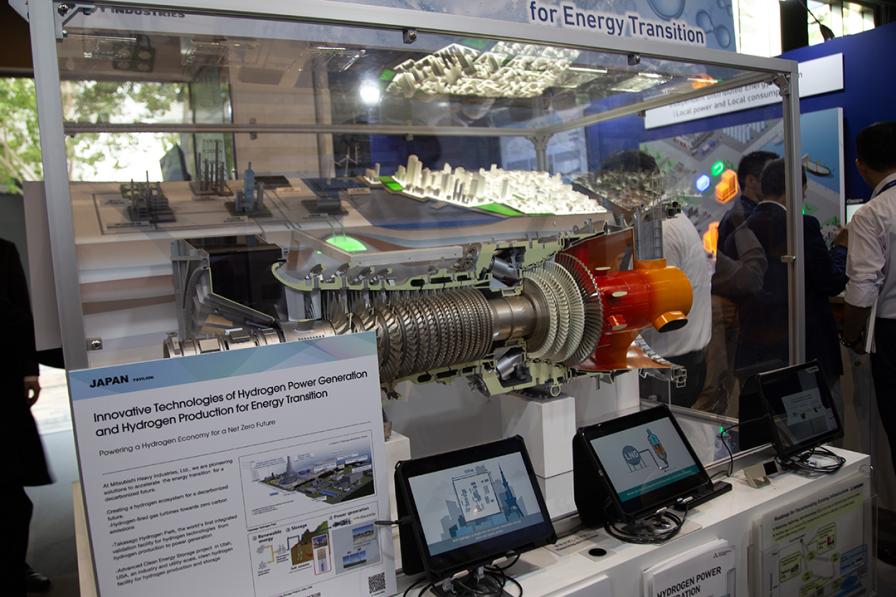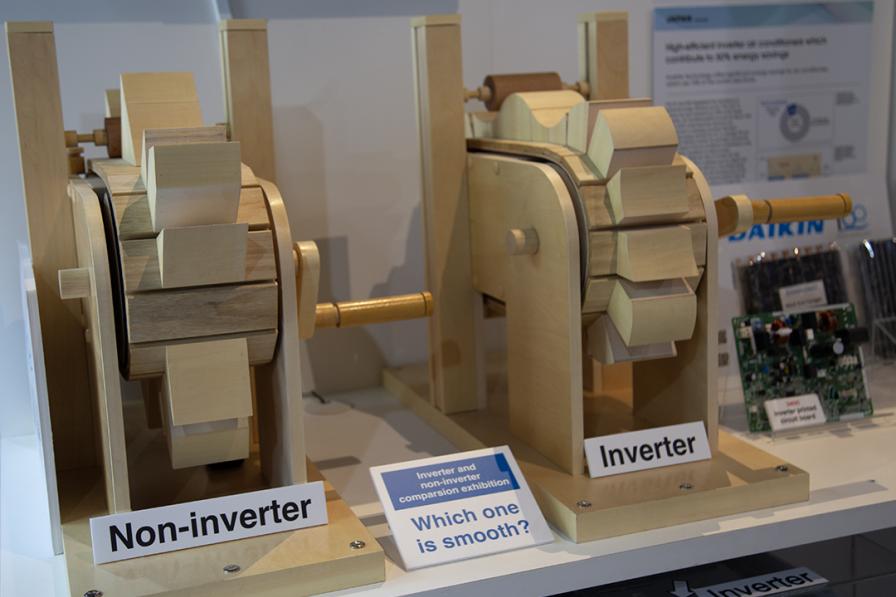International voluntary cooperation, such as through Japan’s Joint Crediting Mechanism (JCM), is key to accelerating the adoption of low carbon technologies to address the climate crisis. Established in 2013, Japan, alongside 28 partner countries, has used the JCM to facilitate the diffusion of decarbonization technologies and to implement emission reduction activities. This side event, co-organized by Japan’s Ministry of the Environment and the Overseas Environmental Cooperation Center (OECC), Japan, shared the latest updates on the JCM, as well as challenges and opportunities for promoting the JCM under Article 6 of the Paris Agreement, specifically Article 6.2 on bilateral actions to reduce or remove emissions.
Makoto Kato, OECC, Japan, moderated the event, which brought together partner countries and funders to highlight the work countries have been doing to operationalize the JCM. Makoto emphasized that the JCM is in “full implementation mode” and, while highly technical, it is also extremely practical and a “frontrunner” for implementing Article 6.2 of the Paris Agreement.
Maiko Uga, Ministry of the Environment, Japan, opened the event by highlighting efforts to operationalize Article 6.2 through the JCM to strengthen Nationally Determined Contributions (NDCs) while promoting sustainable development. She emphasized her hope that this event would facilitate a greater understanding of how the JCM is helping partner countries achieve their goals and encouraged more to step forward in support of the JCM. She mentioned the 11 countries that were added to the JCM in 2022-2023, as well as the work being done in Japan to implement the rules under Article 6, such as the establishment of the JCM Promotions and Utilization Council. The Council will authorize the JCM credits Japan will acquire and revise guidelines to adjust the JCM as needed. She also spoke of the need to expand the JCM across public and private spheres to increase available financing to scale up and accelerate climate action in areas beyond the energy sector.
Virender Duggal, Sustainable Development and Climate Change Department, Asian Development Bank (ADB), reported on efforts to implement the JCM in Asia. He referred to the JCM as an “innovative mechanism” to provide financial resources to help project partners overcome challenges in implementing low carbon technologies. He noted the importance of upfront financing to enable project implementation and highlighted the two-pronged approach the ADB has taken to provide technical assistance to help countries establish institutional infrastructure and to build capacity to operationalize carbon markets.
Ritsuko Yoneda, Ministry of Agriculture, Forestry, and Fisheries, Japan, focused on the powerful role the JCM can play in the agricultural sector. She emphasized the need to mainstream food systems into climate policies, referring to the Emirates Declaration on Sustainable Agriculture, Resilient Food Systems and Climate Action signed by 134 countries during the World Climate Summit on 1 December, as an increasing recognition of the need to address emissions stemming from the agricultural sector. She detailed innovative “alternate wetting and drying” techniques in rice farming that can reduce greenhouse gas (GHG) emissions by 30% without having an impact on yields. She emphasized the dual benefits of increased economic benefits for farmers, as well as reductions in GHG emissions, as emblematic of the positive impacts the JCM can have in agriculture.
Puttipar Rotkittikhun, Thailand Greenhouse Gas Management Organization, and Isabella Villanueva, Ministry of Energy, Chile, highlighted efforts of their respective countries under the JCM to implement low carbon technologies. Puttipar described 17 different methodologies for JCM projects currently underway in Thailand, focusing on renewable energy, energy efficiency, and energy distribution. She indicated that of 51 model projects, 11 have joined the JCM, five of which have issued carbon credits. She also noted the work Thailand and Japan are undertaking jointly to revise the JCM Memorandum of Cooperation to align with Article 6.
Villanueva emphasized that the “JCM is one of our key topics related to carbon markets in Chile'' and has provided an opportunity to develop and learn how to implement carbon markets from an international perspective by engaging with partner countries. She noted that all JCM projects in Chile are energy projects but that an inter-ministerial task force has been established to consider how the JCM can be used across sectors to accelerate decarbonization and help her country achieve its climate goals. She also highlighted the recently passed Framework Law on Climate Change, which imposes specific regulations around the use of Article 6. The law has also helped establish a domestic carbon market and carbon credit baseline system to help Chile reach its decarbonization goals. She praised the importance of the JCM and this collaboration as “one of the most valuable systems being used in Chile and worldwide to advance carbon markets.”
Makoto acknowledged how past side events about the JCM have focused on international rules and procedures, but that today we are hearing about the domestic institutionalization of the JCM. He said this brings about new challenges and opportunities for Japan and partner countries to work together to develop strategies to help countries operationalize Article 6.
Puttipar mentioned additional requirements that could be added to the JCM, such as steps to accommodate the authorization and adjustment of reporting and project selection, monitoring and verification reports, and a transfer of the credit system to Japan. She said all of these could be added to enhance project cycles in ways that align with Article 6.
Virender offered reflections on future advancement of the JCM, emphasizing that countries struggling to figure out how to operationalize Article 6.2 should look toward the JCM. He noted the role the ADB has played since the early stages of carbon market development to advance the capacity of countries to implement low carbon technologies and accelerate strategies toward decarbonization.
Yoneda reaffirmed that the JCM has been a trailblazer in the implementation of Article 6. She said that the work of the JCM in the agricultural sector contributes to both the reduction of emissions and improving food security in the developing world.
Panelists closed by emphasizing: the value of cooperation; the need to scale up projects in the energy sector and beyond; and the importance of developing coherent national strategies to establish sectoral priorities and develop institutional capacities to support implementation of Article 6 to accelerate climate action.
Kazuhiko Takemoto, President, OECC, Japan, closed the event by underscoring Japan’s commitment to further implementing Article 6 and to developing countries’ capacities through partnerships with international organizations like the ADB. While acknowledging the challenges facing countries regarding capacity building and the slow implementation of institutional arrangements, he welcomed Japan’s leadership in enabling countries that have mobilized market mechanisms to decarbonize society.
Organizer: Ministry of the Environment, Japan, and OECC Japan
Contact: Carbon Markets Express | info@carbon-markets.go.jp
For more information: https://www.oecc.or.jp/en/global_environment/20231128/9123/
To receive free coverage of global environmental events delivered to your inbox, subscribe to the ENB Update newsletter.
All ENB photos are free to use with attribution. For this COP 28 side event, please use: Photo by IISD/ENB | Angeles Estrada Vigil
